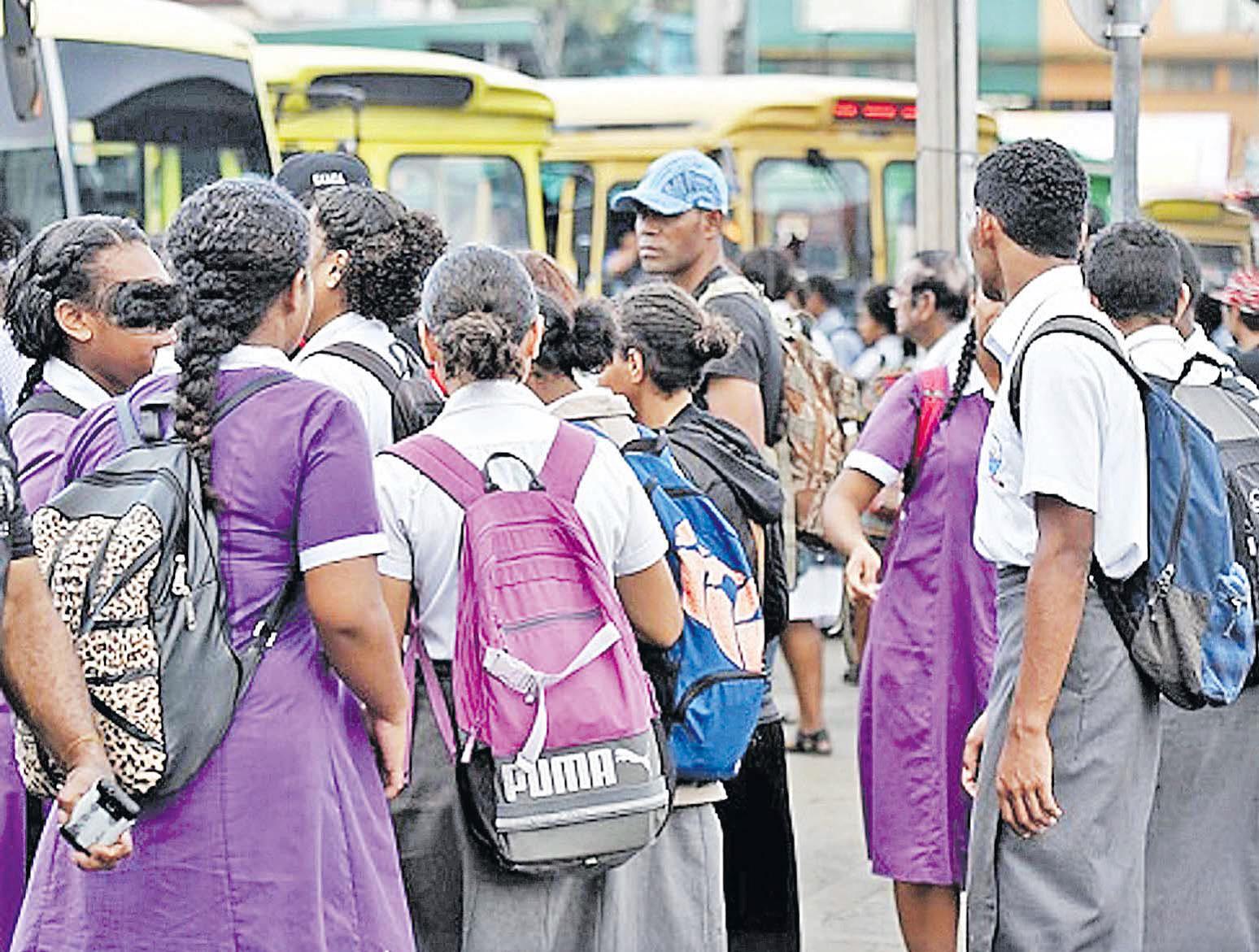For some weird reason, whenever a child is of school-age, he or she is asked the perennial question?
What do you want to become?
A selective menu is given if the child is not sure.
Doctor, lawyer, engineer, pilot, accountant ….
As if the child understands what entails these professions at that moment.
To continue the parody of the circus, the child often chooses something to please the adults, who may gesticulate in happiness over his/her whispered response.
Does this scenario sound familiar?
Today, in Fiji’s education sector, a lot of emphasis, or should one say, too much emphasis is put on what a child will become. It seems that we are a nation where our children have to become factory products when they complete school.
We all need to ask ourselves why do we send our children to school?
Is it only so that they will be able to find professional employment and carry professional labels?
So, have our schools become factories, producing/ cloning a mass of employees for the economic market?
What we really need to be asking our children is, who will you evolve into as a human /spiritual being?
What kind of person you will become? What qualities and talents and disposition you will develop as a human/spiritual being?
Not what will you become?
This paper will argue that for education to be a critical enabler, we must not de-humanise education.
Our education policies please must attempt to go beyond the economic imperatives of only producing skilled human capital for economic growth.
This approach is in direct conflict with the UN sanctioned MDGs and SDGs which promote a humanistic, sustainable development agenda.
In Oceania, educational planners need to support a more holistic ethos in education.
Island economies like Fiji have to strategically maneuver and strengthen its epistemologies, values and cultural philosophies while facing the brunt of the neo-liberal capitalist market.
The global citizen has to first be a multi-skilled, values-oriented, holistic person.
Fiji’s contemporary education system is educating students to be good workers rather than creative thinkers.
Our children are all born creative and have an amazing capacity for innovation. Creativity should be prioritised along with literacy in education dialogues.
Human development in Fiji and the Pacific is not a mechanical process. It is an organic, life giving process.
Today, in Fiji’s classrooms, many children of special and unique talents are not properly accommodated.
Creativity and diversity have little space in today’s education system because schools are now operated under the principles of standardisation, industrialisation and the capitalist market system.
Our schools seem to be following the factory model. Mechanisation and rigid assembly-line pedagogies and assessment modules are resulting in professional worker clones and an uninformed populace.
The pressure to conform or the demand for rigid compliance to a centralissed curriculum, lessons and formal assessments has led to children, who could not conform, to being treated as useless by-products of the school factory.
Children are often judged by a single standard of ability. Educators need to keep in mind that different students learn at different rates in different disciplines.
Our education system needs to move away from the rigid structural modes of teaching and learning and realise that education is a living system.
Prioritise the emotional, mental, intellectual health of our children and their overall well-being.
Also, the cultural ecology or their interdependence of their life experiences, belief systems and the communities that they come from is often in conflict with the formality of teaching and learning process in their classrooms.
Human values such as co-operation, care, compassion, tolerance, ethics and sharing should be the tools of learning instead of blatant competition and an outdated grading system where the learner focuses only on a numerical position instead of the content knowledge and skills gained.
Human values education needs to be integrated more strongly when reviewing educational curriculums. Educational goals must not be economic-oriented only.
Pacific values need to be demonstrated in a practical form through an integration of creative arts, music and environmental projects in all schools in Fiji.
Sustainable development ideology should be inbuilt in the curriculum and contextualised. Group and community projects need to replace text activities and formative assessments.
There has been ample research done to show that without a culturally infused curriculum, the Western education system will not enable all to succeed in school.
Despite using the most advanced, digitally enhanced technological tools in the education sector, Fiji’s students first need to understand, appreciate and value their oceanic identities in the global arena.
There is definitely a need for a more holistic, broader curriculum with an authentic, creative teaching- learning environment in all our schools.
We need to do away with ideologies and educators who practice containing and constraining strategies in the classrooms.
A more customised approach would work better. Focus should be more on empowerment and inspiration rather than control mechanisms.
Every child should feel like a winner at the end of their educational journey. In the words of Samuli Paronen, “Real winners do not compete”.
- REGINA NAIDU is a senior lecturer in the Departmentof Literature and Language in SCLL, CHE, Fiji National University. Her research interests include vernacular education, language education, ESL teaching contexts, gender education, diasporic literature and studies. The views expressed are the author’s and do not reflect the views of her employer or this newspaper



